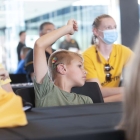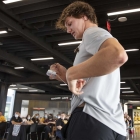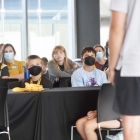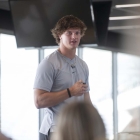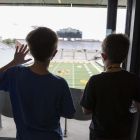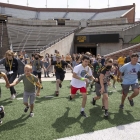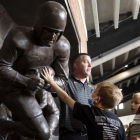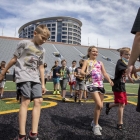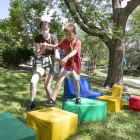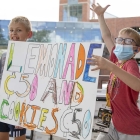Iowa football player Kelby Telander was just a tyke when his family learned he had severe hearing loss.
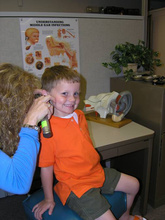
That diagnosis eventually led to cochlear implant surgery at University of Iowa Stead Family Children’s Hospital, followed by speech therapy services. As a small child, he attended the Listen and Speak Up Preschool at the Wendell Johnson Speech and Hearing Clinic, formerly directed by Professor Emeritus Anne Wallace, where he learned important speaking skills designed for kids with cochlear implants and hearing aids.
“I was pretty little, so I don’t remember much, but my parents tell me it was a vital part of my life that helped develop my speaking in a clear and mature way,” the 19-year-old from North Liberty, Iowa says. “They say the practitioners at Wendell did a great job making sure I enjoyed myself while learning.”
Telander, who is currently studying finance at Iowa, plays outside linebacker for the Hawkeye football squad and was also selected in 2009 as one of the first Kid Captains, a program the children’s hospital and Iowa football launched to spotlight inspirational stories about pediatric patients.
He welcomed the opportunity in late July to share his personal story with 15 children as part of UISPEAKS, a 3.5-day summer program designed for kids aged 7-17 who stutter or have hearing loss. The camp is hosted by the Department of Communication Sciences and Disorders in the UI College of Liberal Arts and Sciences.
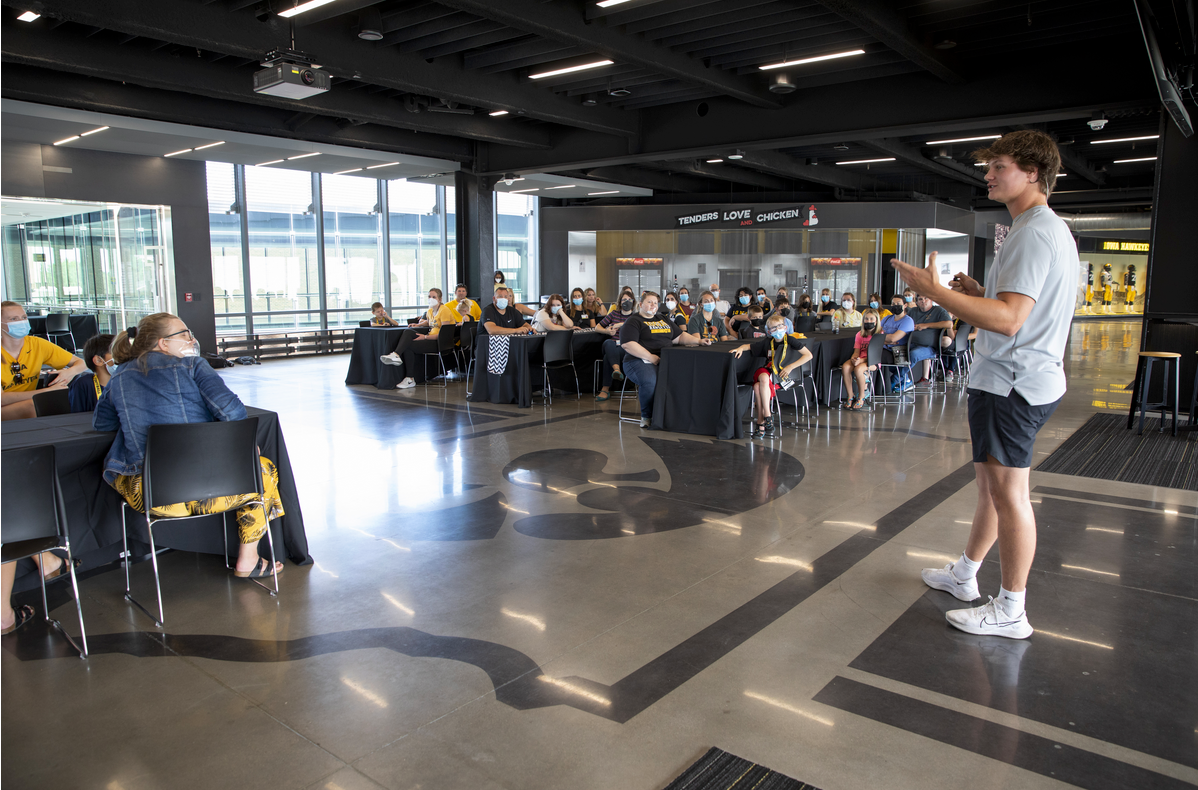
“A lot of kids tend to feel shy when dealing with something that separates them from the crowd, but events like this one [UISPEAKS] surround them with others who are facing the same struggles, he explains. “I couldn’t be happier to be a part of something so special.”
UISPEAKS has been offered to young people for more than 25 years, and until this year, has been focused on stuttering. The camp expanded in 2022 to include kids with hearing loss and offers a variety of activities to help kids develop confidence and self-advocacy through individual therapy sessions and group activities.
“Our camp offers a supportive space for kids and teens to meet others who speak like them and share similar life experiences and identities. Time spent together doing fun activities and learning about their speech builds their communicative confidence,” Clinical Professor Anu Subramanian explains.
During Telander's portion of the program, he shared his own story and took questions from campers. He says kids wanted to talk about serious issues, like how to respond to bullying and hardship — but also chatted about lighthearted topics like sports, movies, and food.
Telander says his best advice for kids navigating hearing loss or speech differences is to be open about it because that helps people understand the condition and, over time, makes it easier to develop friendships whether in school or at extracurricular activities like sports and clubs.
“Don’t shy away or feel embarrassed because you feel different from others,” he says. “Instead, be proud of it and introduce yourself.”
That confidence is something campers are taking with them. The family of 8-year-old Blake Wheeler says their hearts are full after seeing how much their son loved the camp and the sense of self it provided.
“He made new friends and came home a more self-confident kid,” the family said. “The clinicians were full of kindness for the kids and parents —this will definitely be an annual camp for our son.”
The Wendell Johnson Speech and Hearing Center provides several summer programs and support groups for families and children who benefit from speech, language, and hearing services. To learn more about the clinic and the department’s research, visit the Communication Sciences and Disorders website.
